https://newrepublic.com/article/175311/america-polarized-traumatized-trump-violence
If you have to pay for reading this, it’s worth it. Curing what ails us always begins with facing it squarely, and both Ana Marie Cox and Naomi Klein provide excellent and positive advice about how and where to start. [10/1/2023]
Read more
Written for the Abril 2012 issue of Caimán Cuadernos de Cine. — J.R.
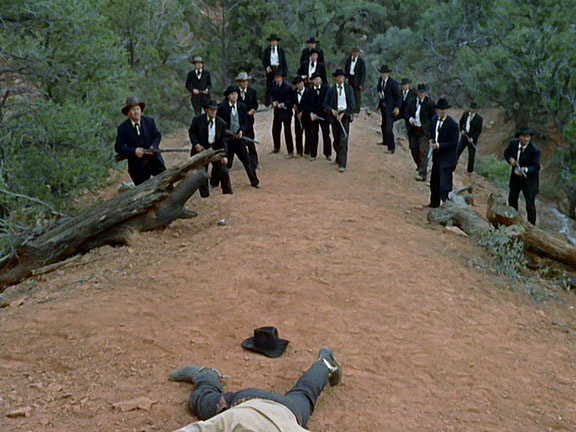
Nick was a gambler — a gambler who often lost.
— Susan Ray in Don’t Expect Too Much

One of the paradoxes of Nicholas Ray’s legend is that in order for it to function, he can’t be regarded simply as either a Hollywood director or as a struggling maverick, but as both. Seen exclusively as the former, he becomes the faceless but coherent and competent metteur en scene of A Woman’s Secret (1949) or Flying Leathernecks (1951). Seen exclusively as the latter, he becomes the personal but incoherent auteur of We Can’t Go Home Again (1973).
A similar problem has informed the career of Ray’s most important disciple, Jean-Luc Godard, another tormented romantic widely regarded as a leftist visionary when he made La chinoise and Week End in 1967, when his work was still sufficiently close to commercial cinema to reflect some of its slickness and glamour. But following May 1968, once he deliberately divested himself of that slickness and glamour and his films had to be judged on their political insights and their political utility alone, he was no less appropriately regarded as misguided and obtuse. Read more
These program notes for a John Cassavetes retrospective in July 1980 were commissioned by the Museum of Modern Art’s Film Department, which as I recall edited them fairly substantially. (My subsequent “review” of the retrospective for The Soho News, “The Tyranny of Sensitivity,” is already available on this site.) I no longer have the unedited version, but I’ve tweaked this version in a few spots for style as well as factual accuracy without altering any of its opinions, some of which I might no longer share. -– J.R.
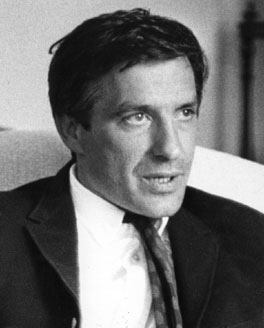
JOHN CASSAVETES, FILMMAKER AND ACTOR
June 20–July 11, 1980
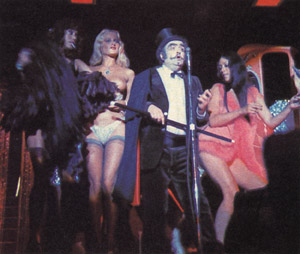
“I Can’t Give You Anything But Love,” the cornball anthem that sounds so memorably through the final moments of Cassavetes’ THE KILLING OF A CHINESE BOOKIE, might be a fair enough theme song for what his contribution to movies is all about: a radical commitment to people that goes beyond mere thought.
His attitude is one that often has been difficult to grasp, for in over three decades as director, writer, and actor, he has seldom encouraged, or even allowed, a detached appraisal. For someone like me, who grew up watching his performances in films and live TV dramas in the fifties before experiencing the raw shock and revelation of SHAD0WS in 1961, a disinterested account of what that shock meant is perhaps impossible. Read more
From Film Comment (May-June 1973). — J.R.
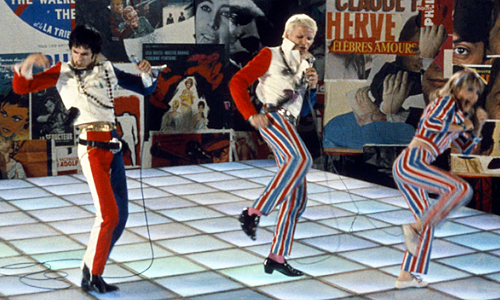
LES IDOLES, Marc’O’s film version of his theater piece, originally opened in Paris in May, 1968, when many of its spectators were out in the street and presumably had other things to think about. It was released again early this year; but after a nominal run in one of several new mini-cinemas that have springing up lately all over the Left Bank, it seemed to vanish into oblivion a second time, only to re-emerge in a neighborhood house in early February, where it is currently playing. Talent does usually seem to find a way to reassert itself. Marc’O’s sarcastic parody about the making and merchandising of pop has nothing particularly profound or original to “say” about its subject, but it happens to have three of the liveliest performances in the modern French cinema.
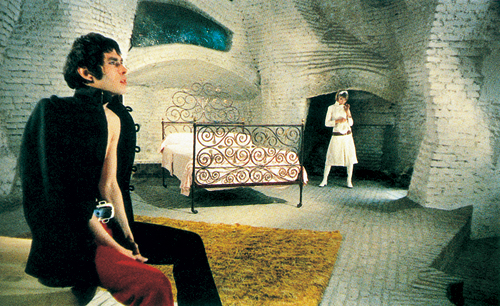
Bulle Ogier, Jean-Pierre Kalfon, and Pierre Clementi, as the three pop stars, dive into their parts with such enthusiasm and expertise that the screen comes alive with their electric energies, and one can only speculate on how much more spectacular they must have been on the stage. (Despite some clever attempts at adaptation, LES IDOLES stubbornly remains another variant of filmed theater — a good thing to have, under the circumstances, but like Shirley Clarke’s ingenious recording of THE CONNECTION, it cannot really offer an equivalent to the excitements of a live performance.) Read more






